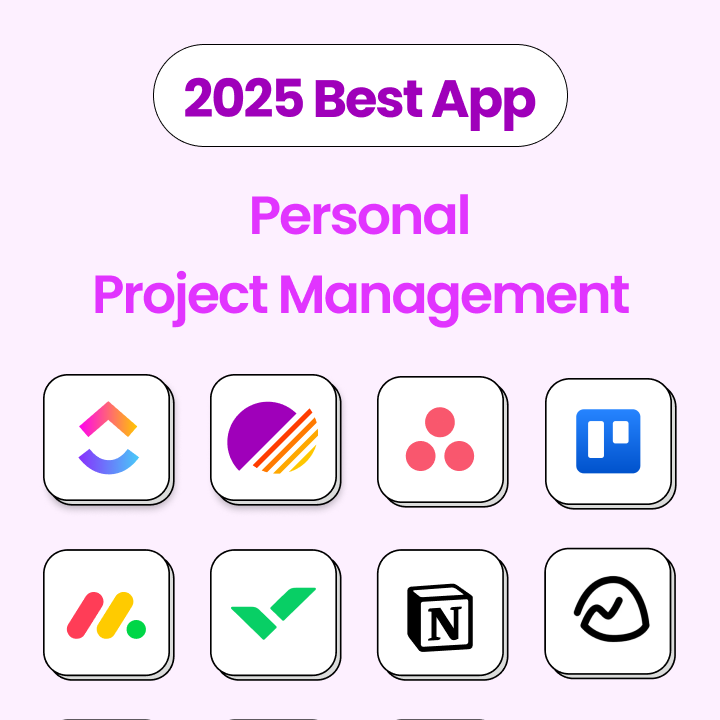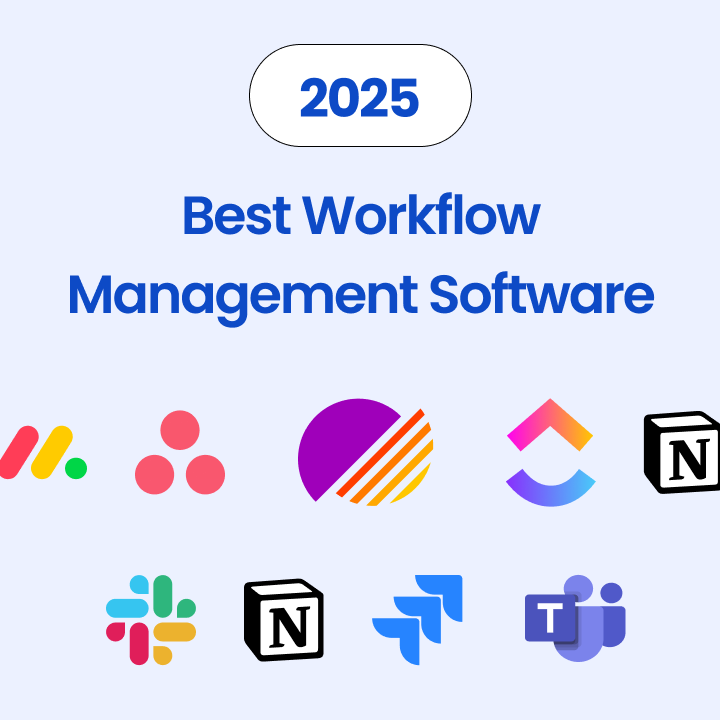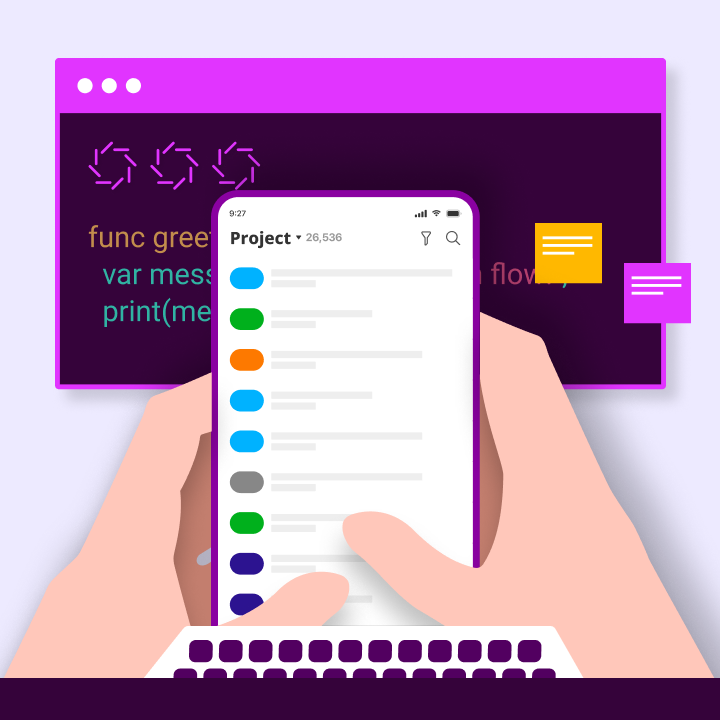Managing personal projects can be daunting without the right tools. Whether you’re a freelancer balancing multiple clients, a solo professional organizing tasks, or someone pursuing personal goals and side projects, effective project management software can make a significant difference. This guide highlights the best personal project management apps and tools available in 2025, helping you find the ideal solution for your needs.
What Is Personal Project Management?
Personal project management involves organizing, planning, and executing individual projects using systematic methods and tools. Unlike traditional team-based project management, it focuses on helping individuals efficiently manage their own tasks, deadlines, and goals.
This approach breaks larger objectives into manageable tasks, sets realistic timelines, tracks progress, and maintains accountability—all while working independently. Personal project management can apply to creative endeavors, side businesses, professional development, and daily task organization.
The key distinction is its simplicity and individual focus. While corporate project management tools often include complex collaboration features and extensive reporting, personal project management software prioritizes user-friendliness, quick setup, and features that boost individual productivity. These tools transform chaotic to-do lists into structured, actionable plans that get completed.
For individuals, effective project management means having a clear understanding of what needs to be done, when it should be finished, and how tasks connect to larger goals. It’s about creating systems that align with your working style, schedule, and project types—whether you’re planning a home renovation, launching a blog, or managing multiple freelance assignments.
Why Individuals Need Project Management Tools
Today’s individuals face unique challenges that make project management tools essential for success. Without the structure and accountability of a team, solo workers must develop their own systems to stay organized and motivated.
First, managing cognitive load is crucial when working alone. Our brains can only track a limited number of tasks and deadlines at once. Project management software acts as an external memory system, freeing mental resources for creative and strategic thinking instead of trying to remember every detail.
Accountability is another vital factor. In team settings, colleagues and managers provide natural checkpoints and motivation. Solo professionals must establish their own accountability systems, and project management tools help by offering visual progress tracking, deadline reminders, and milestone celebrations.
Time management also becomes more complex when juggling multiple personal or professional projects. Without clear prioritization and scheduling, important tasks can get lost amid daily urgencies. Project management tools help differentiate between what’s urgent and what’s truly important, ensuring long-term goals receive the attention they deserve.
Additionally, many individuals work across various contexts—personal goals, freelance projects, side businesses, and learning initiatives. A centralized system to manage all these areas prevents important tasks from slipping through the cracks and provides a comprehensive view of your commitments and capacity.
Finally, project management tools offer valuable insights into your productivity patterns. By tracking how long tasks actually take compared to estimates, identifying bottlenecks, and analyzing completion rates, you can continuously enhance your planning and execution skills.
Key Features to Look for in Personal Project Management Software
Task & Deadline Management
Effective task management is the foundation of any personal project management system. Look for tools that allow you to quickly create tasks, set due dates, assign priority levels, and organize tasks into projects or categories. The best systems enable you to break large tasks into smaller subtasks, making overwhelming projects feel manageable.
Deadline management features should include visual indicators for upcoming due dates, overdue tasks, and easy rescheduling options when plans change. Smart deadline features might automatically reschedule dependent tasks if one task is delayed or suggest realistic timelines based on your historical completion rates.
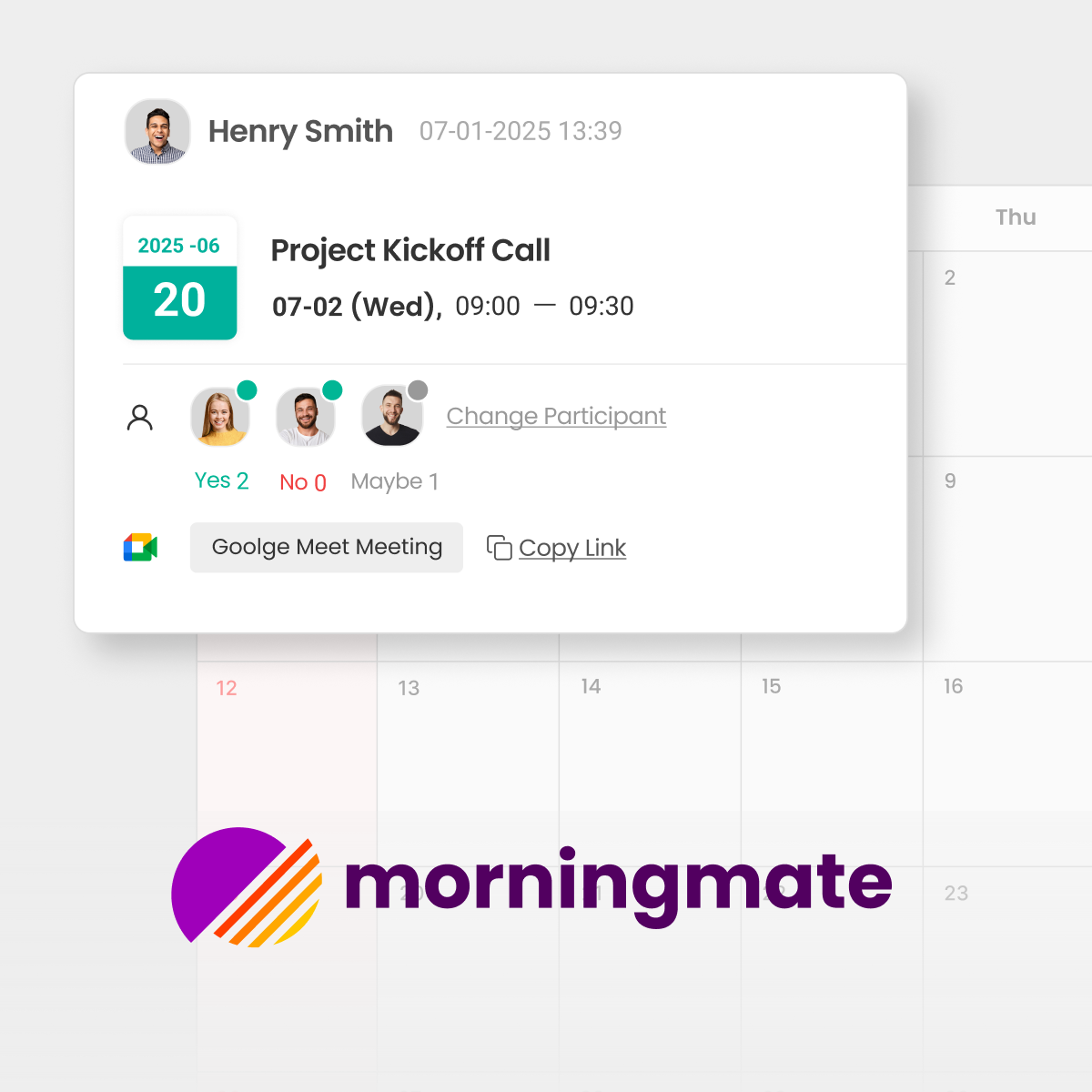
Calendar Integration
Seamless calendar integration ensures your project tasks align with your actual schedule. The best tools sync with popular calendar applications like Google Calendar, Outlook, or Apple Calendar, allowing you to view project deadlines alongside meetings and personal appointments.
Advanced calendar features may include time-blocking capabilities, enabling you to allocate specific time slots for project work, and automatic scheduling that identifies available time slots for tasks based on their estimated duration and priority. This integration helps prevent overcommitment and ensures realistic project timelines.
Cross-device Accessibility
Modern professionals work across multiple devices and locations. Your project management tool should offer robust mobile apps, desktop applications, and web access with real-time synchronization. Whether you’re updating tasks on your phone during your commute, planning on your tablet at a coffee shop, or working on your computer at home, your project data should always be accessible and up-to-date.
Cross-device functionality should include offline capabilities for limited internet access, push notifications for important deadlines and updates, and a consistent user experience across all platforms. A strong mobile experience is essential, as many users prefer to check and update tasks on their phones throughout the day.
Simplicity and Ease of Use
For individual users, complexity can hinder consistent use. The best personal project management tools balance powerful features with intuitive interfaces. You should be able to add a new task in seconds, and navigating between different views and projects should feel natural.
Look for tools with minimal learning curves, clean visual designs, and customizable interfaces that can be simplified or expanded based on your needs. The tool should enhance your productivity without requiring significant time to master and maintain.
Automation & Reminders
Automation features reduce the manual workload of project management. Seek tools that can automatically create recurring tasks, send deadline reminders via email or push notifications, and move tasks between different stages based on your defined rules.
Smart reminder systems should offer customizable notification timing and methods. Some users prefer gentle daily digests, while others need urgent alerts for approaching deadlines. The best tools adapt to your preferences and adjust reminder timing based on your response patterns and project success rates.
10 Best Personal Project Management Apps in 2025
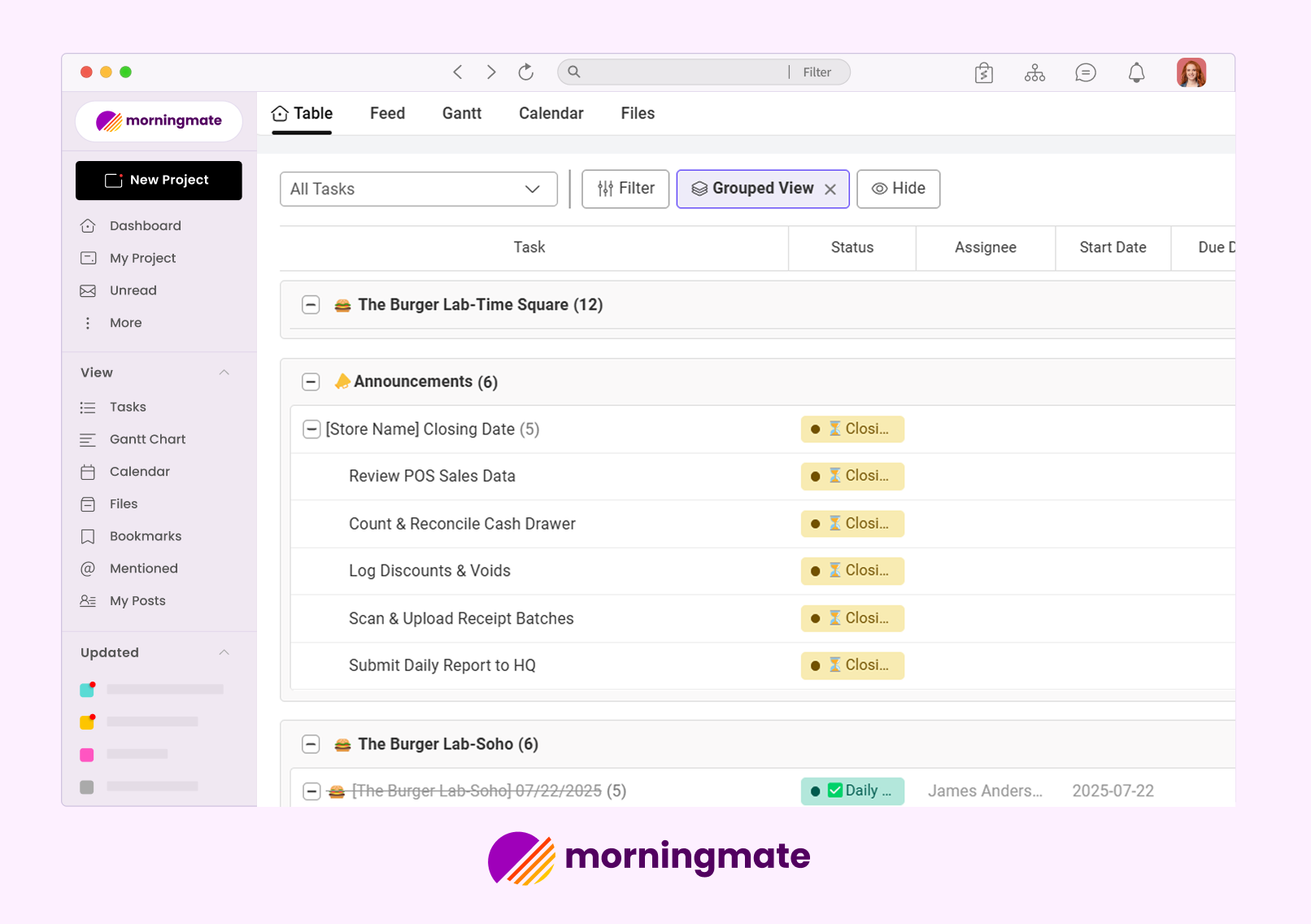
1. Morningmate — Best for All-in-One Team & Client Collaboration
Morningmate is the best all-in-one project management tool for teams that need to collaborate with clients, freelancers, or external stakeholders. Unlike many tools that charge extra for guest access, Morningmate offers free external invitations across all plans, making it ideal for cross-organizational collaboration.
The platform combines task management, calendar scheduling, chat, and file sharing in a single workspace. You can create multiple project rooms for different clients or teams, assign tasks, set deadlines, and track progress without switching tools.
Morningmate’s intuitive UI makes onboarding fast, even for non-technical users. Its mobile app ensures seamless communication and task tracking on the go. With a generous Free plan and a Starter plan at $8.99/user/month, it’s a powerful yet affordable solution for freelancers, side hustlers, and small teams.
What makes Morningmate stand out is its external collaboration model and simple pricing structure. You get full enterprise-grade features without the complexity—or the cost.
2. ClickUp — Best All-in-One Tool
ClickUp is the most comprehensive personal project management app of 2025. It offers enterprise-level features tailored for individual users, combining task management, document creation, goal tracking, and time management in a single interface.
The personal plan includes unlimited tasks, various project views (list, board, calendar, Gantt), and robust automation features. ClickUp’s template library provides ready-made setups for common personal projects like habit tracking, content planning, and goal management. The mobile app retains full functionality, allowing you to manage projects on the go.
What makes ClickUp unique is its flexibility. You can start with simple task lists and gradually add complexity as your needs evolve. The learning curve is manageable, and the free tier is generous enough for most users to begin without any financial commitment.
3. Asana — Best for Task Organization
Asana excels in task organization with an intuitive interface that makes project management feel effortless. Its clean design and logical task hierarchy allow you to organize work into teams, projects, and individual tasks with subtasks.
For individuals, Asana’s personal plan offers great value with project templates, calendar integration, and basic dashboard features. The My Tasks view creates a personalized workspace where all your assignments appear in one place, sortable by due date, project, or custom fields.
Asana’s mobile app is well-designed, making it easy to capture ideas and tasks while away from your computer. The platform also integrates seamlessly with tools you may already use, such as Google Drive, Slack, and various time-tracking applications.
4. Trello — Best for Visual Planning (Kanban)
Trello transformed project management with its card-based Kanban system, remaining the gold standard for visual project organization. Its simplicity is its greatest asset—creating boards, lists, and cards feels as natural as organizing physical sticky notes.
For personal project management, Trello’s visual approach allows you to see project progress at a glance. You can create boards for different areas of your life (work, personal, side projects) and use lists to represent various stages of completion. Cards can include detailed information, attachments, due dates, and checklists.
Trello’s Butler automation feature reduces manual work by automatically moving cards, creating recurring tasks, and sending notifications based on your defined rules. Its simplicity makes it ideal for users who want to manage projects without the complexity of advanced software.
5. Notion — Best for Note-Taking + Project Planning
Notion combines project management with note-taking, database management, and document creation in one powerful platform. For individuals who prefer to keep everything in one place, Notion offers unmatched flexibility and customization options.
The platform allows you to create custom databases for projects, tasks, goals, and resources, all interconnected through powerful linking and filtering systems. You can build personalized dashboards that combine your task lists, notes, project timelines, and reference materials in a layout that suits your thinking style.
Notion’s template gallery includes numerous personal productivity setups, from simple task managers to complex life management systems. While the learning curve is steeper than simpler tools, the payoff is a fully customized system that adapts to your needs and preferences.
6. Todoist — Best for Simplicity and Speed
Todoist excels at task management. Its natural language processing lets you create tasks by typing phrases like “Call dentist tomorrow at 2pm,” automatically setting the due date and time.
The quick capture feature allows you to add new tasks rapidly, whether using the mobile app, desktop application, or browser extension. Todoist’s project organization system is straightforward yet flexible, enabling you to create hierarchical projects and use labels and filters to organize tasks across various dimensions.
For individuals seeking powerful task management without complexity, Todoist strikes an excellent balance. The karma system gamifies task completion, providing motivation through points and productivity trends. Premium features include task comments, file uploads, and advanced filtering options.
7. Wrike — Best for Professionals Who Need More Power
Wrike offers professional-grade project management features that scale well for individual users. The platform includes Gantt charts, time tracking, workload management, and detailed reporting features that rival enterprise solutions.
For solo professionals managing complex projects or multiple clients, Wrike’s advanced features provide the depth needed without the overhead of team collaboration. The platform excels at handling projects with dependencies, resource constraints, and detailed timeline requirements.
Wrike’s request forms feature allows you to create intake processes for new projects or tasks, which is particularly useful for freelancers gathering client requirements systematically. The time tracking and reporting features offer valuable insights into project profitability and personal productivity patterns.
8. Smartsheet — Best for Complex Project Structures
Smartsheet offers enterprise-level project management capabilities in a spreadsheet-friendly interface. For individuals managing complex projects with multiple phases, dependencies, and resource requirements, Smartsheet provides the depth and sophistication needed.
The platform excels at Gantt chart creation, critical path analysis, and resource management. You can create detailed project timelines, track dependencies between tasks, and analyze project scenarios to optimize completion times and resource allocation.
While Smartsheet has a steeper learning curve than simpler tools, it offers capabilities that rival dedicated project management software used by large organizations. For solo professionals managing sophisticated projects or multiple complex initiatives, investing time in learning the platform pays off in improved project outcomes.
9. Basecamp — Best for Freelancers & Small Teams
Basecamp takes a unique approach to project management, emphasizing simplicity and communication over complex features. For individuals who occasionally collaborate with others or manage client projects, Basecamp strikes an excellent balance of functionality and ease of use.
The platform organizes work into projects that include message boards, to-do lists, schedules, documents, and file storage. This straightforward structure keeps all project-related information in one place without overwhelming complexity.
Basecamp’s strength lies in its client-friendly interface. If you need to share project progress with clients or collaborate with other freelancers, Basecamp provides a professional, easy-to-understand environment that requires no training for occasional users.
10. Hive — Best Free AI-Powered Project Tool
Hive represents the next generation of AI-enhanced project management tools. The platform uses artificial intelligence to offer smart scheduling suggestions, automatic task prioritization, and predictive analytics about project completion times.
AI features include intelligent time estimation based on similar past tasks, automatic categorization of new tasks, and proactive scheduling suggestions based on your calendar and workload. These capabilities improve planning accuracy and reduce the mental overhead of project management.
Hive’s free tier is particularly generous, offering most core features at no cost. For individuals interested in exploring how AI can enhance their project management without significant financial commitment, Hive provides an excellent entry point into next-generation productivity tools.
Free vs. Paid Project Management Software for Individuals
Choosing between free and paid project management software depends on your unique needs, the complexity of your projects, and your long-term objectives. By understanding the pros and cons of each option, you can make a decision that boosts your productivity without incurring unnecessary costs.
Free project management tools usually provide basic task management, simple project organization, and limited collaboration features. They are ideal for individuals new to structured project management or those with straightforward organizational needs. Popular free options include Trello’s basic plan, Asana’s personal tier, and ClickUp’s generous free offering.
However, free plans often come with restrictions, such as limited storage, basic automation features, simple reporting, and fewer integration options. As your projects grow in complexity or your productivity needs increase, these limitations can hinder your efficiency.
Paid plans offer advanced features like unlimited storage, sophisticated automation, detailed analytics, priority support, and extensive integrations. For professionals who rely on efficient project management for their income, the productivity benefits of premium features often justify the monthly cost after just a few completed projects.
Best Personal Organizer Software: Additional Free Tools to Consider
Google Calendar
Google Calendar is one of the most powerful free organizational tools available. Beyond basic appointment scheduling, it supports multiple calendars, offers smart scheduling suggestions, and integrates with nearly every productivity tool. For project management, you can create dedicated calendars for different projects, set milestone reminders, and block time for focused work sessions.
Its sharing capabilities make it easy to coordinate with clients or collaborators, while the mobile app ensures your schedule is always accessible. Google Calendar’s integration with Gmail automatically adds events from emails, reducing manual data entry for project-related meetings and deadlines.
Microsoft To Do
Microsoft To Do offers robust task management with seamless integration across the Microsoft ecosystem. The platform features smart lists that automatically organize tasks by due date, importance, or custom criteria. For users of Microsoft 365, To Do integrates perfectly with Outlook, OneNote, and other Microsoft applications.
The My Day feature helps you focus by presenting a curated list of tasks for today, combining scheduled items with suggestions based on due dates and priorities. This approach minimizes overwhelm while ensuring important tasks receive attention, even when your task list grows long.
Evernote
While primarily a note-taking application, Evernote’s organizational features make it valuable for project management. You can create notebooks for different projects, use tags for cross-project organization, and set reminders for important notes and documents.
Evernote’s web clipper allows you to save research, inspiration, and reference materials directly into project notebooks, creating comprehensive project archives. Its search capabilities make it easy to find specific information across all your projects, even in images and handwritten notes.
Calendar.com
Calendar.com provides advanced scheduling features that enhance project management tools. The platform automates scheduling for client meetings, team coordination, and personal time blocking. For freelancers and consultants, sharing availability and allowing clients to book time directly reduces scheduling overhead.
The platform integrates with major calendar applications and project management tools, ensuring your scheduled time aligns with your project commitments. Advanced features include buffer time between meetings, location-based scheduling, and automatic timezone handling for remote work.
How to Choose the Right Project Management Tool for You
Define Your Goals
Begin by clearly identifying what you want to achieve with project management software. Are you looking to organize existing chaos, improve deadline adherence, enhance project quality, or boost overall productivity? Different tools excel in different areas, so understanding your primary objectives will help narrow your options.
Consider both your immediate needs and future growth. A tool that works well for personal tasks might become limiting when you start taking on client work or launching side projects. Conversely, choosing overly complex software for simple needs can create unnecessary barriers to consistent use.
Evaluate Your Workflow
Analyze your current work habits to identify tools that complement rather than disrupt your existing patterns. If you’re highly visual, tools like Trello or Airtable’s gallery view may feel more intuitive than text-heavy interfaces. If you prefer detailed planning, Gantt chart capabilities may be essential.
Consider your device usage, collaboration needs, and integration requirements with other tools you already use. A tool that doesn’t sync well with your existing email, calendar, or file storage systems can create friction that hinders long-term adoption.
Test Before You Commit
Most project management tools offer free trials or generous free tiers. Take advantage of these to test tools with real projects instead of hypothetical scenarios. Set up a current project in each tool you’re considering and use it for at least a week to understand the daily experience.
Pay attention to how quickly you can capture new tasks, how easy it is to reorganize priorities when circumstances change, and whether the tool’s notifications and reminders align with your preferred working style. The tool should feel like a help, not a hindrance.
FAQs About Personal Project Management Tools
What’s the easiest tool for beginners?
For absolute beginners, Todoist and Trello offer the simplest learning curves while still providing powerful functionality. Todoist is great for task-focused individuals who want to start simple and gradually add complexity. Its natural language input makes task creation intuitive, and the project structure is straightforward.
Trello is ideal for visual learners who think in terms of workflows and stages. The card-based system feels familiar to anyone who has used physical sticky notes or kanban boards. Both tools offer excellent mobile apps and require minimal time investment to start seeing productivity benefits.
Are there free personal project management apps?
Yes, several excellent free options exist for personal project management. Trello, Asana, and ClickUp all offer generous free tiers that provide core functionality at no cost. These free plans typically include unlimited personal projects, basic task management, and mobile access.
Free limitations usually involve storage space, advanced features, and team collaboration tools. For individual users focused on personal project organization, free tiers often provide everything needed to get started and establish good project management habits.
Can I use these tools for both personal and professional projects?
Most project management tools can handle both personal and professional projects within the same account. You can create separate workspaces, projects, or boards for different areas of your life while maintaining a unified view of all your commitments.
This unified approach often improves work-life balance by providing clear visibility into your total commitments across all areas. However, consider privacy and data security requirements if you’re mixing personal information with client or employer data.
Final Recommendation: Start Small, Scale as Needed
The best personal project management system is the one you will use consistently. Instead of searching for the perfect tool right away, start with a simple, free solution that addresses your most pressing organizational challenges. As your needs become clearer and your project management habits develop, you can upgrade or switch to more advanced tools.
Remember that project management tools are means to an end, not ends in themselves. The goal is to complete meaningful projects efficiently and with less stress, not to become an expert in productivity software. Choose tools that seamlessly integrate into your workflow and allow you to focus on what matters most.
Begin your journey today by selecting one tool from this list, setting up a current project, and committing to using it for at least two weeks. You’ll quickly discover which features truly enhance your productivity and which ones are just nice-to-have extras. From there, you can refine your choice and build a personal project management system that aligns with your unique goals and working style.

